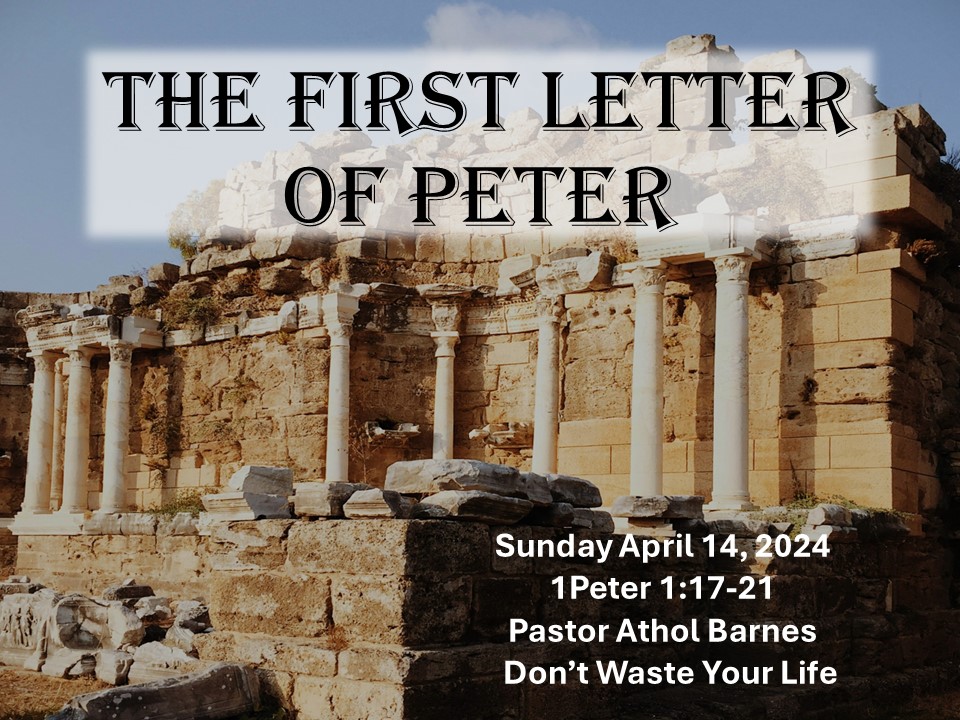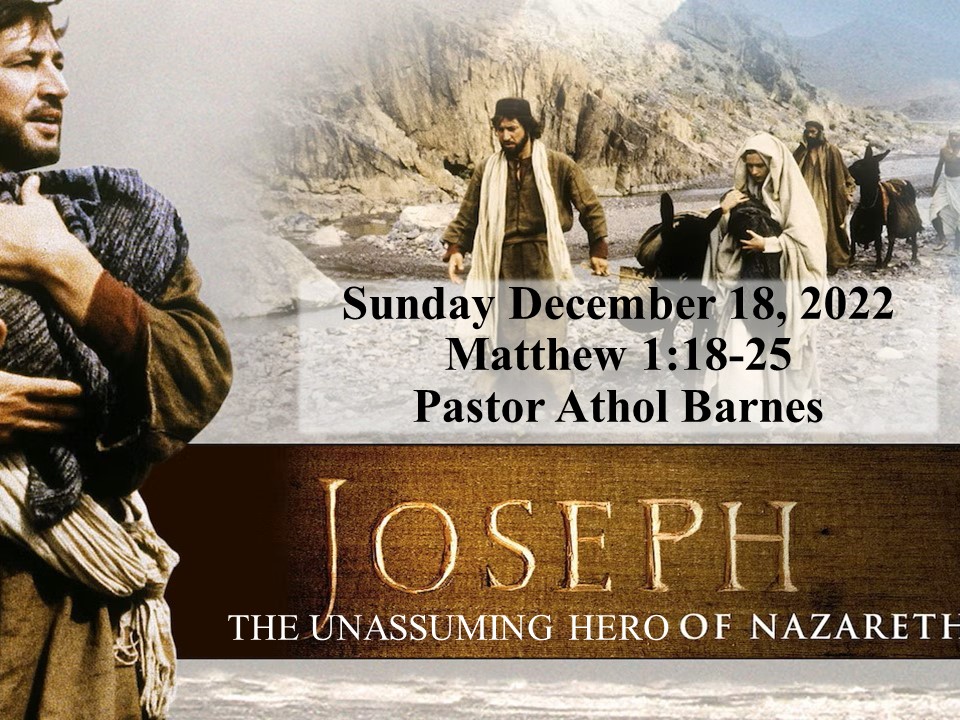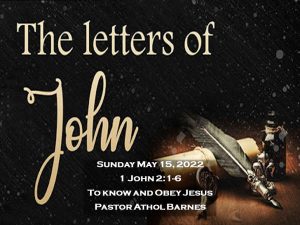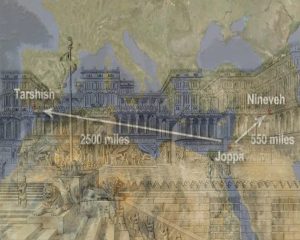
Have you considered how much time you waste in a day? In today’s passage, the apostle Peter reminds us that we are judged impartially by God, ransomed from futility, and set apart for God’s glory.
Judged Impartially
Peter writes in 1 Peter 1:17, “And if you call on him as Father who judges impartially according to each one’s deeds, conduct yourselves with fear throughout the time of your exile.”
God judges everyone impartially; we do not because even in our very best intentions, we are still biased.
God is merciful and forgiving, but He is also a loving disciplinarian who cannot permit His children to enjoy sin. God takes sin seriously; sin must be dealt with.
Our actions, righteous or sinful, lead to either blessings or correction from our Heavenly Father.
The pain of being separated from our relationship with God is a natural consequence of our sin. God does not show partiality.
God doesn’t grant people a pass to sin because they have done great exploits for the Kingdom of God. One cannot build up “credit” with God in order to offset some future or intended sin.
Warren Wiersbe writes, “Years of obedience cannot purchase an hour of disobedience.”
The only reason we can even speak to God is because of what Jesus has done for us on the cross. All we must do to be set free from sin is look at the cross and the price He paid for us. Our Father judges impartially; our sin has been dealt with on the cross. We are covered in the righteousness of Christ. Thus, we live to please God in our lives, fearing the possibility of bringing disrepute to the name of the one who died for us.
Our heavenly Father lovingly disciplines His children today and our works will be judged later at the judgment seat of Christ (see 2 Corinthians 5:10).
Sadly, the global church seems to have worked so hard to make God relatable to the lost world that He has been remade in our image, reduced to a friendly grandfather who is always on call to give us whatever we want. But our God is a consuming fire (See Hebrews 12:29). He is completely holy and holds our very beings together.
Ransomed from Futility
Peter continues in verse 18 to remind the readers that they were ransomed from the futile ways inherited from their forefathers. He reminds his readers and us today that someone paid the price of our freedom (see Romans 6:23).
We were all sinners condemned to an eternity separated from God, but Romans 5:8 says that while we were yet sinners, Christ died for us. Jesus purchased our freedom from futility. Before we became followers of Jesus, we were slaves to a purposeless lifestyle that leads to death.
Peter is writing to the Jews who were in exile in Babylon. He is writing to the children of Israel whose forefathers had been miraculously set free from Egypt under the leadership of Moses.
They were set free for a purpose, and yet they rejected the call of God. By their disobedience, they rejected the call to the Promised Land. They rejected the plan that God had for their generation, and they wandered aimlessly in the wilderness until they all died.
Are you wandering aimlessly in the wilderness of this world? Seeking pleasure and entertainment rather than the plan of God for your life?
If you are a follower of Jesus, you are free to live with a new life and purpose that God has planned for you. Do you know this freedom today?
Do you know what you have been saved from? Do you know the freedom that comes from being washed by the blood of Jesus and filled with the Holy Spirit?
Set Apart for God’s Glory
In verse 20-21 we read, “He was foreknown before the foundation of the world but was made manifest in the last times for the sake of you who through him are believers in God, who raised him from the dead and gave him glory, so that your faith and hope are in God.”
Peter explains that the death and resurrection of Christ was not a sudden change of plans for God. God does not react to things in the world; He ordained that Jesus would suffer and die and be raised on the third day. This was God’s plan before the beginning of time. We cannot understand that, but God sees all human history and future at the same moment. Nothing is hidden from Him.
From a human perspective, and from Peter’s perspective on the day Jesus was crucified, Jesus was cruelly murdered. It seemed like God the Father had made a mistake; the Savior was not supposed to die. But that was God’s plan all along. Peter may have remembered what Jesus had said in John 10:17-18, that he would lay down his own life and take it up again.
Peter highlights this truth that Jesus was raised from the dead. This was the primary message of the early church. Jesus is alive, and he is interceding for us today at the Father’s right hand. Without the resurrection, we have no hope. We have nothing to live for in times of hardship and trial. But our Redeemer lives.
When we meditate on all that Jesus has done for us, the incredible salvation gift that we have been given, it ought to affect our every decision. We should be compelled to live set apart lives for the glory of God.
We have the call to be holy in 1 Peter 1:13-16; now we have the call to live a life of purpose. A call not to waste a moment. Jesus came to set us free; he was crucified, and his blood was the price for our redemption. He was raised from the dead, and now we have the privilege of living for him, to bring glory to his name and to live a life of purpose.
Make It Count
The captain of the World Cup winning South African rugby team, Siya Kolisi, has a motto that he lives by: “Don’t count your days, but make your days count.”
We have been blessed with life and spiritual gifts by the Holy Spirit: how are we using what we have been given?
Are you using the days that God has given you for His purposes as one who has been judged impartially by God, ransomed from futility, and set free for the glory of God?
“For we are his workmanship, created in Christ Jesus for good works, which God prepared beforehand, that we should walk in them.” Ephesians 2:10






